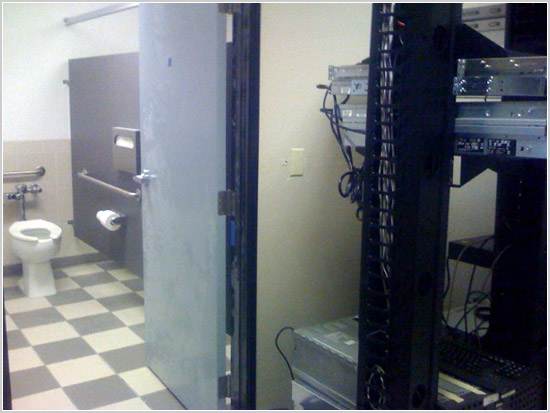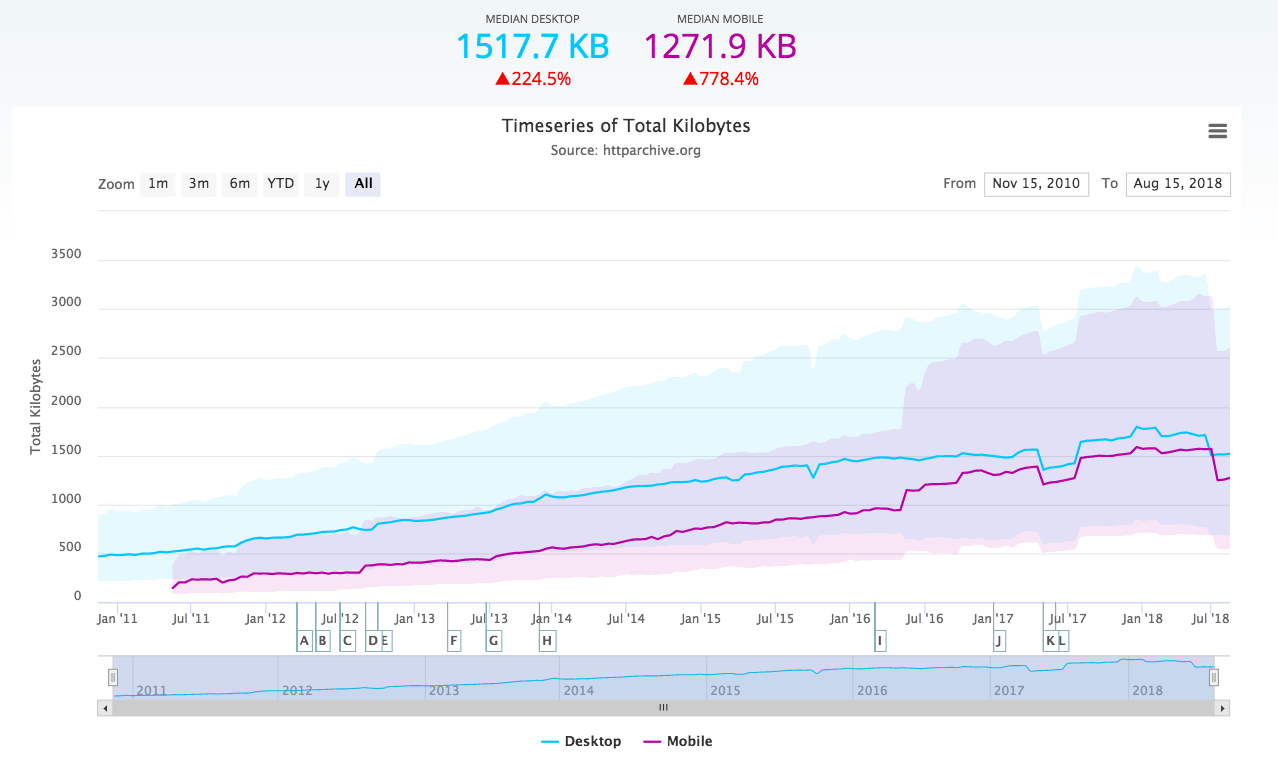Most people who have worked with IT have at one time or another in their work life come across some amazingly strange practices or major oversights that in retrospect seem more or less insane.
Here is a collection of crazy stories specifically about data centers and server rooms that we have filtered out from the gazillion of anecdotes at The Daily WTF:
Server room entrance via the women’s bathroom
When a company switched office floors but had to leave their on server room on their old floor, the solution was “simple”. Since they couldn’t walk through the offices of the new tenants in their old office, the building’s management agreed to let them seal off the server room from the old office, and build a new entrance. However, the only possible entrance then became a bit less than ideal: Through the handicapped stall in the women’s bathroom. But they did it.

Don’t use the code lock – use your trusty Bic pen
A server room at a school had been deemed too important to be locked by a mere key. Instead they had installed a push-button code lock. There was just one flaw. On installing the push-button lock, the old key lock cylinder had simply been removed, leaving a hole in the door where you used to put the key. Someone discovered that if you put a Bic pen in the hole, you could open the lock mechanism. Presto: instant access!

A secure and well-ventilated location… the men’s bathroom?!?
When helping a construction site set up their computer network, a consultant instructed the project manager at the construction site to “install the server in a secure and well-ventilated location.” Apparently the definition should have been slightly more fool-proof. When the consultant arrived on site, the equipment was set up inside the men’s bathroom in a construction site trailer.

The admin robot – reboot via CD-ROM eject
When an important server used for credit card transactions started crashing on a regular basis, and there was no budget in place to replace it, one tech jokingly suggested that they build a robot that could reboot the machine day and night. They ended up doing exactly that. A perfectly aligned piece of machinery ejected a CD-ROM sled exactly on the reset button of the problematic server as soon as it stopped responding to ping. (You have to wonder if MacGyver was involved…)

The eco-friendly guy vs. the A/C units
When a server room filled with important server equipment was overheated during a three-day weekend, the damage was significant, with equipment replacements alone costing nearly $200,000. Once the dust settled and people started researching why the still-functioning A/C units had stopped working specifically over the weekend, an email from one of the employees turned up:
From: ----- ----------- To: IT Department Re: A/C constantly running. To whom it may concern, I came in today (Monday) to finish up a project I was working on before our big meeting with the State ----- Commission tomorrow, and I noticed that there were three or four large air conditioners running the entire time I was here. Since it's a three day weekend, no one is around, why do we need to have the A/C running 24/7? With all the power that all those big computers in that room use, I doubt it is really eco-friendly to run those big units at the same time. And all computers have cooling fans anyway, so why put the A/C for the building in that room? I got a keycard from [the facility manager’s] desk and shut off the A/C units. I'm sure you guys can deal with it being warm for an hour or two when you come in tomorrow morning. In the future, let's try to be a little more conscientious of our energy usage! Thanks, -----
And there is more…
There are plenty of other amusing anecdotes that we couldn’t fit in since it would have made this post huge, so here are a few more, compressed:
- Weird wiring – kitchen light shutting down server
- Downtime due to melted servers
- A/C + overflowing fish bowl – Not ideal for a server room
- Water-cooled servers…
- Super-secure data center location vs. super-insecure server setup
- CEO-induced upgrade frenzy – upgrade the CEO instead
- Server as saw horse = bad idea
- Backup overkill deluxe
All the above stories were found on the often very funny The Daily WTF, a website dedicated to collecting weird IT-related stories. (We can’t guarantee they’re all 100% true, though.)
We hope you found these stories as amusing as we did, and please feel free to share your own favorite anecdotes in the comments. 🙂


























